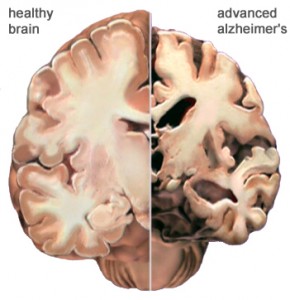
New Jersey Institute for Successful Aging (NJISA) at the University of Medicine and Dentistry of New Jersey (UMDNJ)-School of Osteopathic Medicine’s Robert Nagele, PhD, led a research team that has demonstrated that the anti-atherosclerosis drug darapladib can reduce leaks in the blood brain barrier. These findings open up quite a few possibilities for new drug therapies to prevent the onset of Alzheimer’s disease.
The researchers were able to find this new drug theory through an a study that involved the use of darapladib in animal models that had been stimulated to develop diabetes mellitus and hypercholesterolemia (DMHC), which are both huge risk factors for developing Alzheimer’s disease.
Nagele said, “Diabetes and hypercholesterolemia are associated with an increased permeability of the blood-brain barrier, and it is becoming increasingly clear that this blood-brain barrier breakdown contributes to neurodegenerative diseases such as Alzheimer’s. Darapladib appears to be able to reduce this permeability to levels comparable to those found in normal; non-DMHC controls, and suggests a link between this permeability and the deposition of amyloid peptides in the brain.”
This study included 28 pig models that were had been divided into three different groups. Group 1 DMHC animals were treated with 10 mg/day of darapladib, group 2 DMHC animals received no treatment and group 3 were non-DMHC animals. Post-mortem analysis of the brains of group 1 showed a decrease in blood-brain barrier leakage and in the density of amyloid-positive neurons in the cerebral cortices. The amyloid peptides that did leak into the brain tissue were found nearly exclusively in the pyramidal neurons of the cerebral cortex. This is one of the earliest pathologies of the development of Alzheimer’s disease.
“Because our results suggest that these metabolic disorders can trigger neurodegenerative changes through blood-brain barrier compromise, therapies — such as darapladib — that can reduce vascular leaks have great potential for delaying the onset or slowing the progression of diseases like Alzheimer’s The clinical, caregiving and financial impact of such an effect cannot be overestimated.” said the study’s lead author, Nimish Acharya, PhD, of the NJISA and the UMDNJ-Graduate School of Biomedical Sciences.